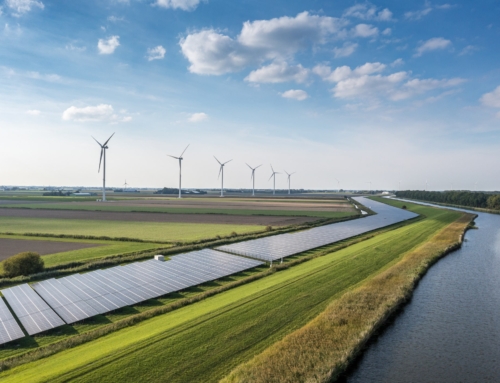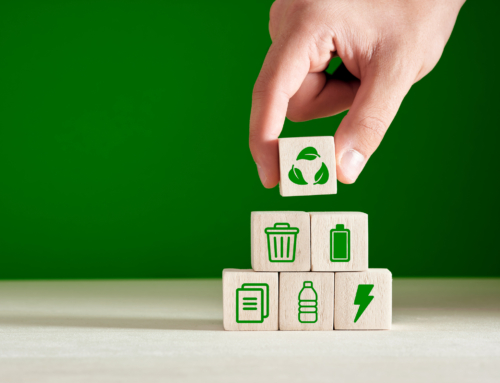Many homes rely on an HVAC system to maintain comfortable temperatures indoors. But with heating and cooling accounting for as much as half of a household’s total energy expenses, an energy-efficient HVAC system could be very beneficial in the long run.
Furthermore, the energy supply in most homes is produced by burning fossil fuels, which release hazardous greenhouse gases into the atmosphere. Lowering your energy consumption helps to protect the environment by reducing your carbon footprint.
Here’s a brief guide to HVAC systems and what makes some more energy-efficient than others.
How Do HVAC Systems Work?
There are various types of HVAC systems, but the most common is the forced air system. It uses air ducts and vents to distribute temperature-controlled air throughout your home. Below are its key components and how each works.
- Heating: An HVAC heats the air through a furnace or boiler. Either mechanism can run on natural gas, propane, oil, or electricity. A furnace generates heat by igniting a burner, whereas a boiler generates heat by producing steam from boiling water.
- Cooling: The most commonly used cooling equipment is the air conditioner. It is a closed-loop system wherein the refrigerant or coolant absorbs and removes warm air and pumps it outdoors, releasing cold air inside your home.
- Ductwork: Air ducts are a series of pipes distributing heated and cooled air throughout the interiors.
- Thermostat: Think of it as the brain of any HVAC system. The thermostat controls indoor climate by turning on or shutting down the equipment to meet a set temperature.
How to Calculate Your HVAC’s Energy Cost
Running your HVAC consumes energy, and your total utility bill largely depends on how efficient your system is. To estimate how much you’ll pay to operate your heating or cooling equipment per hour, use the following formula:
Rated Power of Equipment (in W/watts) x [Electricity Cost (per kWh/kilowatt-hour) / 1000] = Cost per Hour
Keep in mind that a kWh is the amount of energy consumed by running a 1,000-watt appliance for one hour.
To figure out your home cooling costs for the summer, add up the number of hours the unit will run during the season and multiply by the kWh cost.
What Makes HVAC More Efficient
Compared to standard units, an energy-efficient HVAC uses less energy and costs less to operate without affecting performance and comfort. Here’s what you need to look at when comparing efficiency:
- SEER: Seasonal energy efficiency ratio or SEER measures an air conditioner’s cooling output ratio, divided by the energy it uses in Watt-hours. SEER ratings for modern air conditioners range from 13 to 21. The higher the number, the more efficient the cooling appliance will be.
- AFUE: Annual fuel utilization efficiency or AFUE refers to the percentage of heat used by a furnace or boiler converted into heating your home. Like SEER, a higher number means more efficient equipment. A unit that has above 95 percent AFUE is converting most of its fuel into heat.
Besides ratings, other factors can lower energy efficiency. Old or worn-out components, lack of preventive maintenance, relatively high indoor humidity, and air leaks cause your system to work harder and consume more energy.
Tips to Improve Efficiency
Below are a few HVAC energy-saving tips to follow.
Upgrade Your HVAC Equipment
If your system is already more than ten years old, consider replacing it with energy-efficient HVAC equipment. Newer models have higher SEER and AFUE ratings, so use these as your guide when weighing options. Also, opt for Energy Star® certified products for guaranteed cost savings.
Insulate & Seal
Before investing in new HVAC products, ensure you’ve addressed air leakages in the ducts and throughout your home. Improve insulation and seal all possible entry and exit points of conditioned air, including gaps around windows, doors, and walls.
Keep Up with Maintenance
Routine maintenance not only keeps your HVAC in excellent running condition, but also prevents sudden breakdowns. Have a professional inspect and tune up your heating and cooling appliances before heavy usage during warmer months.
Change Filters Regularly
Air filters get clogged with dirt over time, blocking proper airflow. It causes your HVAC equipment to consume more power to maintain the set temperature. Make your system efficient by replacing filters every three months.
Program the Thermostat
If your thermostat isn’t the programmable kind yet, it’s time to upgrade it. A programmable thermostat lets you regulate indoor climate with predetermined settings, making it easier to save on utility costs. When setting it, keep it closer to outside temperatures—the lower the difference, the less strain on your HVAC and the more energy-efficient it will be.
Maintain an Energy-Efficient Home with Kiwi Energy
Having an efficient home starts with your HVAC. However, it’s also vital to have a trusted energy provider. The Kiwi Guard Home Protection Plan at Kiwi Energy HVAC option covers unanticipated repairs to your system. Contact us to learn more today!






